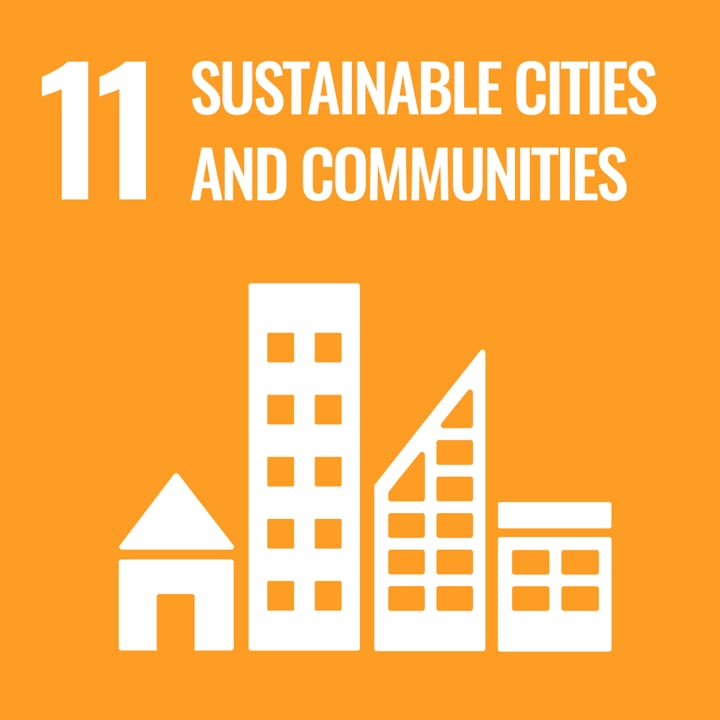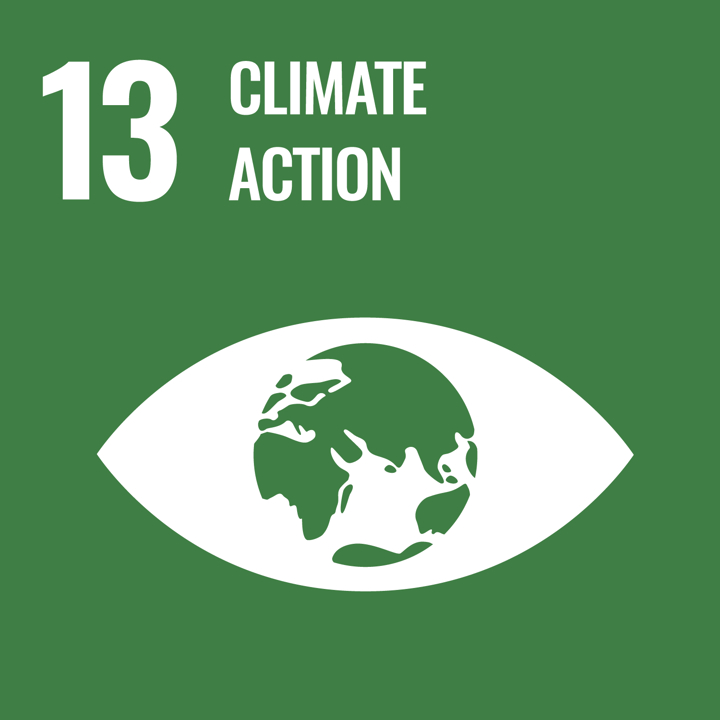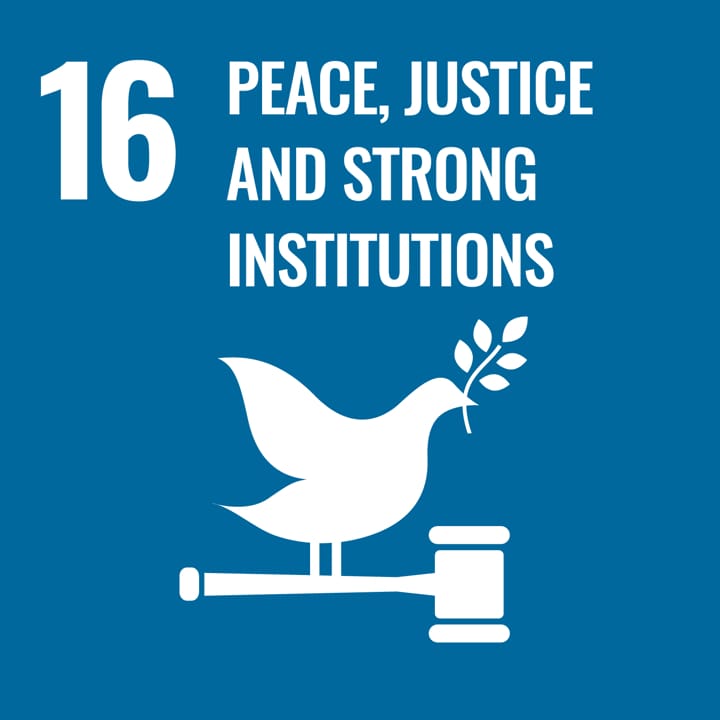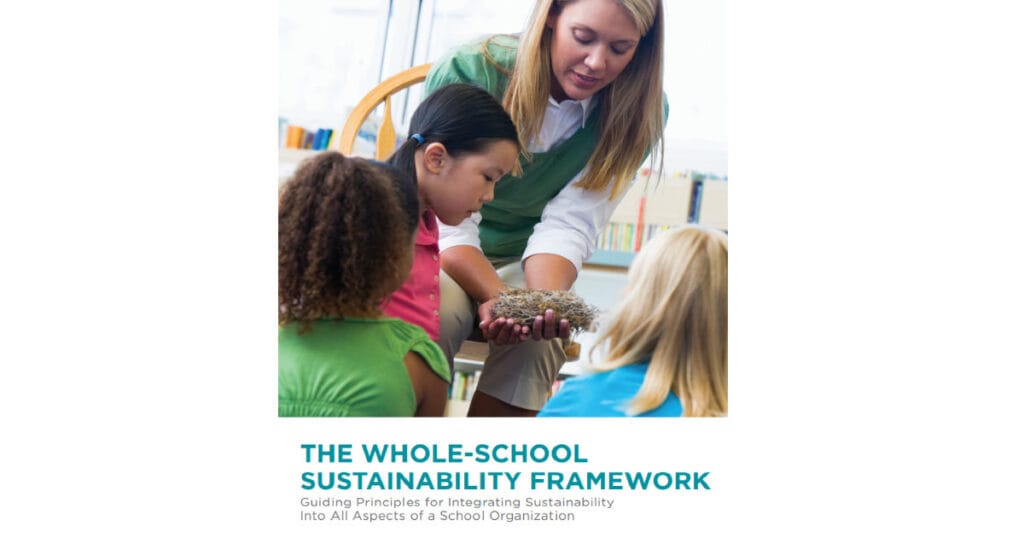
Intended End User: Teacher, School Leader, Teacher Educator
Age Group: Lower Primary; Upper Primary; Lower Secondary; Upper Secondary
School Curriculum: Maths; Science; Social, Physical & Health Education; Social & Environment Science; Languages; Arts; Applied Science
Themes and Topics: Energy Use and Production; Behaviour & Lifestyle; Collective Action; Environmental Change; School Leadership
Duration: Variable according to each school.
Type of Resource: Guidelines & Notes
Keywords: Organisational Culture, Physical Place, and Educational Program
Languages: English
Description
The Whole-School Sustainability Framework outlines three pillars—Organisational Culture, Physical Place, and Educational Program—that support sustainability in schools. It provides guiding principles, implementation examples, and strategies for educators and school leaders seeking to embed sustainability throughout all aspects of school life. It is a practical reference and strategic planning tool.
How to use this resource
Educators and school leaders can use this guide to evaluate current school practices, plan sustainability goals, and implement long-term sustainability initiatives through teaching, leadership, and school culture change. The Whole-School Sustainability Framework can help educators and school leaders integrate sustainability into their school’s operations, culture, and curriculum. By using this framework, schools can assess current practices, set sustainability goals, and implement long-term initiatives that foster environmental stewardship, enhance human health, and promote ecological literacy among students.
Key Components of the Framework:
- Organisational Culture: Cultivating a shared vision and values that prioritise sustainability within the school’s community.
- Physical Place: Ensuring that the school’s infrastructure and operations minimise environmental impact and support sustainable practices.
- Educational Program: Integrating sustainability concepts into the curriculum to enhance students’ understanding and commitment to environmental responsibility.
Strategies for Implementation:
- Assessment Instruments: Use surveys and audits to evaluate the school’s current sustainability performance across various domains, including energy use, waste management, and curriculum integration.
- Action Planning Templates: Develop detailed plans that outline specific sustainability objectives, timelines, responsible parties, and required resources.
- Monitoring and Evaluation Tools: Implement systems to track progress toward sustainability goals, allowing for data-driven decision-making and continuous improvement.
- Curriculum Integration Guides: Access resources that provide strategies for embedding sustainability topics into existing subjects, fostering interdisciplinary learning and real-world application.
- Stakeholder Engagement Frameworks: Engage students, staff, parents, and the wider community
The resources
Whole-School Sustainability Framework PDF:
Learning Outcomes (Teachers)
- Apply a range of suitable tools and frameworks to promote student Sustainability Citizenship
- Reflect on practice and examine national curricula to identify opportunities to promote Sustainability Citizenship in interdisciplinary ways and engage with external stakeholders.
- Collaboratively synthesise the knowledge, tools and frameworks to create educational materials and lessons plans adapted to their own local context
Learning Outcomes (Leadership)
- Apply a range of suitable tools and frameworks to promote Sustainability Citizenship within their schools and communities.
- Examine their own national/regional curricula, educational policies, programmes and external stakeholders to identify opportunities to promote Sustainability Citizenship in their schools and communities.
- Collaboratively synthesise knowledge, tools and frameworks to create a vision for delivering a school environment that supports the development of Sustainability Citizenship in their community.
Green Competencies
- Embodying Sustainable Values: Valuing Sustainability; Supporting Fairness; Promoting Nature
- Embracing Complexity in Sustainability: Systems Thinking
- Envisioning Sustainable Futures: Exploratory Thinking
- Acting for Sustainability: Collective Action
Creative Commons
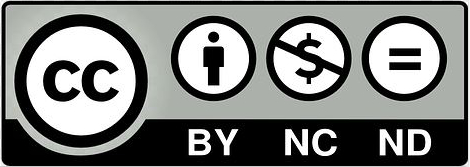
SDGs

